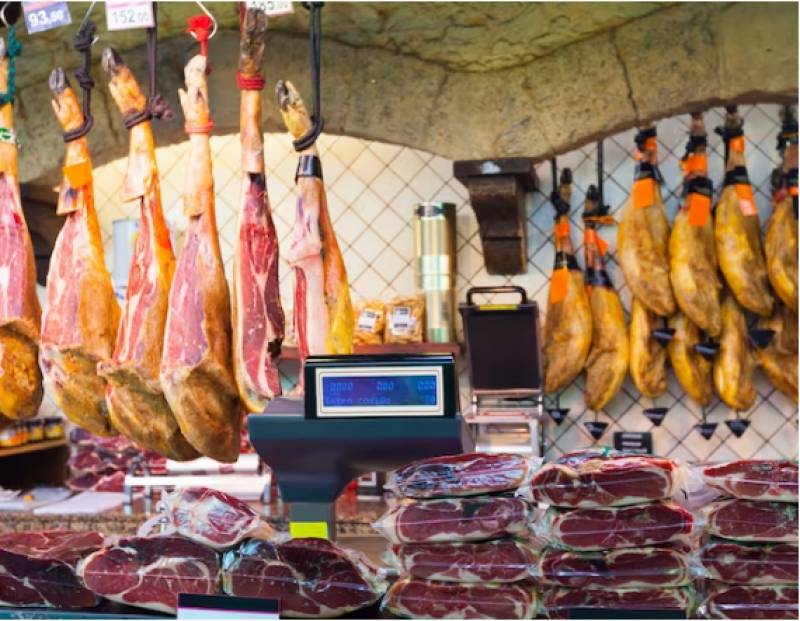article_detail
Date Published: 31/01/2023
ARCHIVED - Climate change threatens the future of Iberian ham in Spain
Extreme heatwaves and drought in Spain are destroying the pigs’ food source

The climate crisis is posing a serious threat to Spain’s prized jamón ibérico, a luxury ham that the industry fears will become scarcer and more expensive in the coming years. The main culprit is prolonged drought, which is reducing both the land the animals have to graze on and the number of acorns there are to feed them.
Within a three month period, blackfoot pigs that produce Spain’s Iberian ham must gain around 60 kilos, and a key factor is that they gorge themselves on acorns during this period to give them meat its distinctive flavour.
But according to Rodrigo Cárdeno of Explotaciones Agropecuarias Cárdeno, there simply isn’t enough for the animals to eat, which means that this year, around 150,000 fewer pigs will be available for slaughter.
Jamón ibérico is produced primarily in Extremedura and three other regions that hold the official denominación de origen for this gourmet product, which goes for around 100 euros per kilo. It’s a key export for Spain and although France continues to be the main foreign market, its popularity is increasingly growing in countries like Germany and the United Kingdom.
Spain recorded its hottest year ever in 2022 and the third driest. On top of drought parching the land, farmers also had to contend with rising production costs.
“We are focused on the ruin of the sector, expenses have equalled income and it's a disaster,” producer Emilio Muñoz explained.
Farmers believe that the coming summer will be the worst in 40 years as a result of the lack of rain in previous months, since the oak trees that produce the vital acorns struggle to survive in the long, hot and dry summers we have been experiencing.
An obvious solution for Iberian ham producers would be to import acorns from abroad, but this presents its own challenges, according to industry insider Francisco Espárrago:
“The main source is Morocco and Algeria, where of course they do not raise pigs, but I am concerned that the importation of acorns could introduce new diseases.”
It’s estimated that this season there will be between 30% and 40% fewer pigs, and if the climate crisis continues to worsen then this already pricey product is likely to skyrocket.
Image: Freepik
Loading
See more environmental news about Spain:
OR
Sign up for the Spanish News Today Editors Roundup Weekly Bulletin to get a comprehensive email with all the week’s news for Spain, Murcia, Alicante and Andalucía.
Get a sneak peek – here are a few of our recent Subscription Bulletins:
Discount Special Offer subscription:
36.95€ for 48 Editor’s Weekly News Roundup bulletins!
Please CLICK THE BUTTON to subscribe.
Contact Spanish News Today: Editorial 966 260 896 /
Office 968 018 268




























